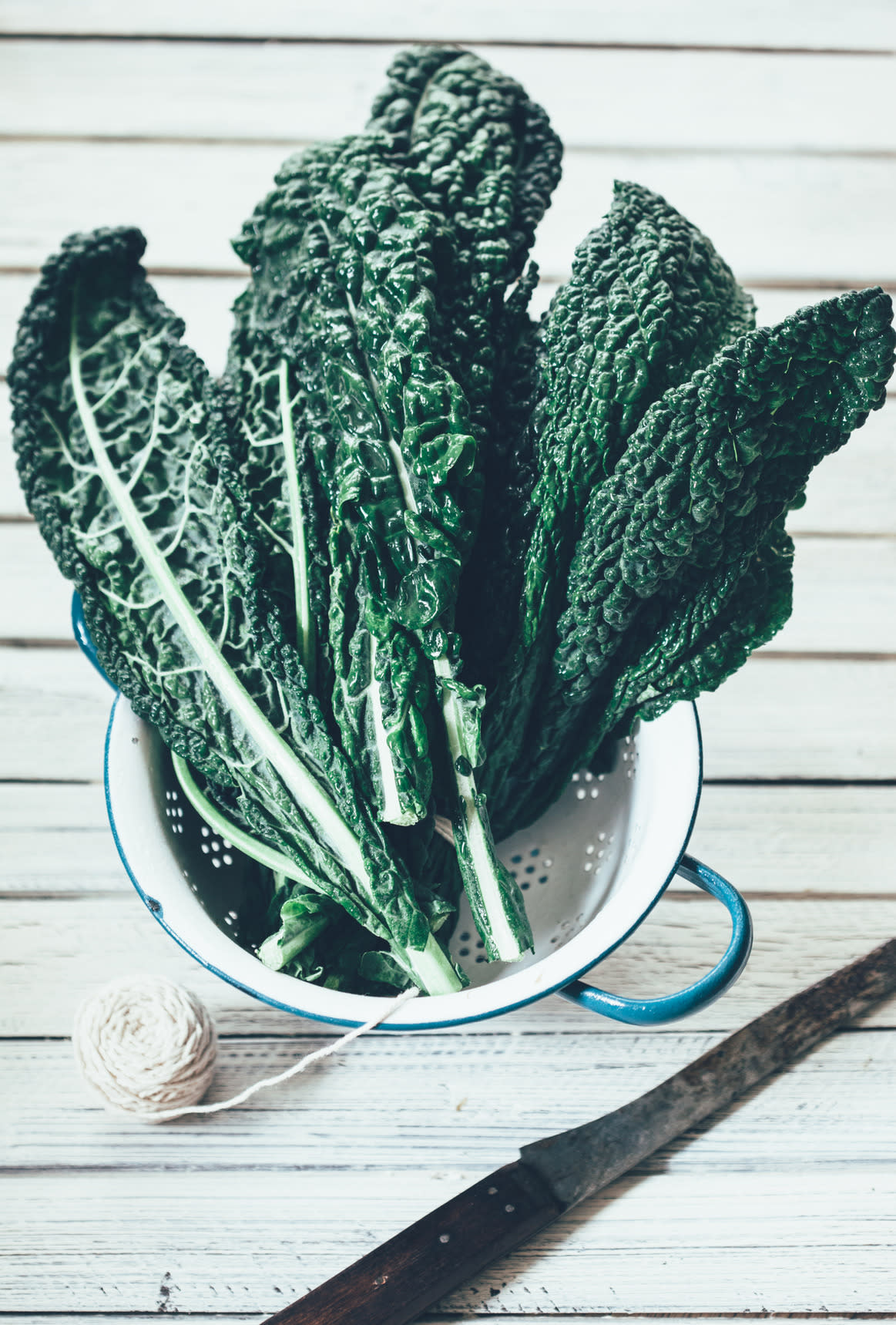Is Kale ‘Healthy?’ Diet Language Goes Under the Microscope

Photo: Darren Muir/Stocksy
What does “healthy” mean, anyway? In this compelling Washington Post piece, food writer Michael Ruhlman questions our perception of the word and the underlying concept that certain ingredients are inherently healthy or unhealthy.
“Our food is not healthy; we will be healthy if we eat nutritious food,” Ruhlman writes. He holds up kale as a striking example: Kale is not “healthy,” although it’s nutritious. “Words matter. And those that we apply to food matter more than ever.”
Related: 8 Healthy Food Trends to Look for in 2016
Though some might write this distinction off as a matter of semantics, the article contends that anointing certain foods as “healthy” may prove problematic. One can not live on kale alone, for instance, although it’s part of a diet that contributes to one’s health.
The word “healthy” can in fact obscure the true nutritional value (or lack thereof) of foods, Rulhman ventures, and it isn’t the only word that’s troublesome. “Protein,” “mechanically separated meat,” “natural,” “all-natural,” and “refined” describe concepts that are far more complicated than much of the public understands.

Photo: Jeff Wasserman/Stocksy
Protein, for instance, has “positive health connotations.” But the much maligned pork crackling — fried pig skin from which most fat has been rendered out — is “composed almost entirely of protein.” Ruhlman recommends it as a “‘protein snack’ during your on-the-go day.”
Related: Meet the Man Who Wants Doctors to Be Cooks, Too
So far the article page has garnered nearly 350 comments, which reflect a wide range of opinions on the subject. There’s certainly plenty of support for Ruhlman’s assertions:
“To call any food or type of food ‘healthy’ is to make the whole concept of nutrition very one-dimensional, and then it becomes easy to fall for marketing tricks and health fads that are anything but healthful,” writes user Paulo Reyes. “It’s a magic word, like the more you have of something 'healthy’ the healthier you’ll become.”
On the other hand, plenty think the piece is a bunch of handwringing. “I feel this article is an unnecessary complication of a simple message,” writes user Sung Park. User MrsRenard agreed, calling Ruhlman’s distinction between the words “healthy” and “nutritious” “a little petty.”
Where do you stand on the subject? Let us know in the comments below.
Considering a diet makeover? Check out these stories:
8 Satisfying Smoothie Recipes to Mix Up This Winter
A 6-Week Plan for Cutting Out Processed Foods
What the Amount of Sugar in a Single Red Bull Looks Like

